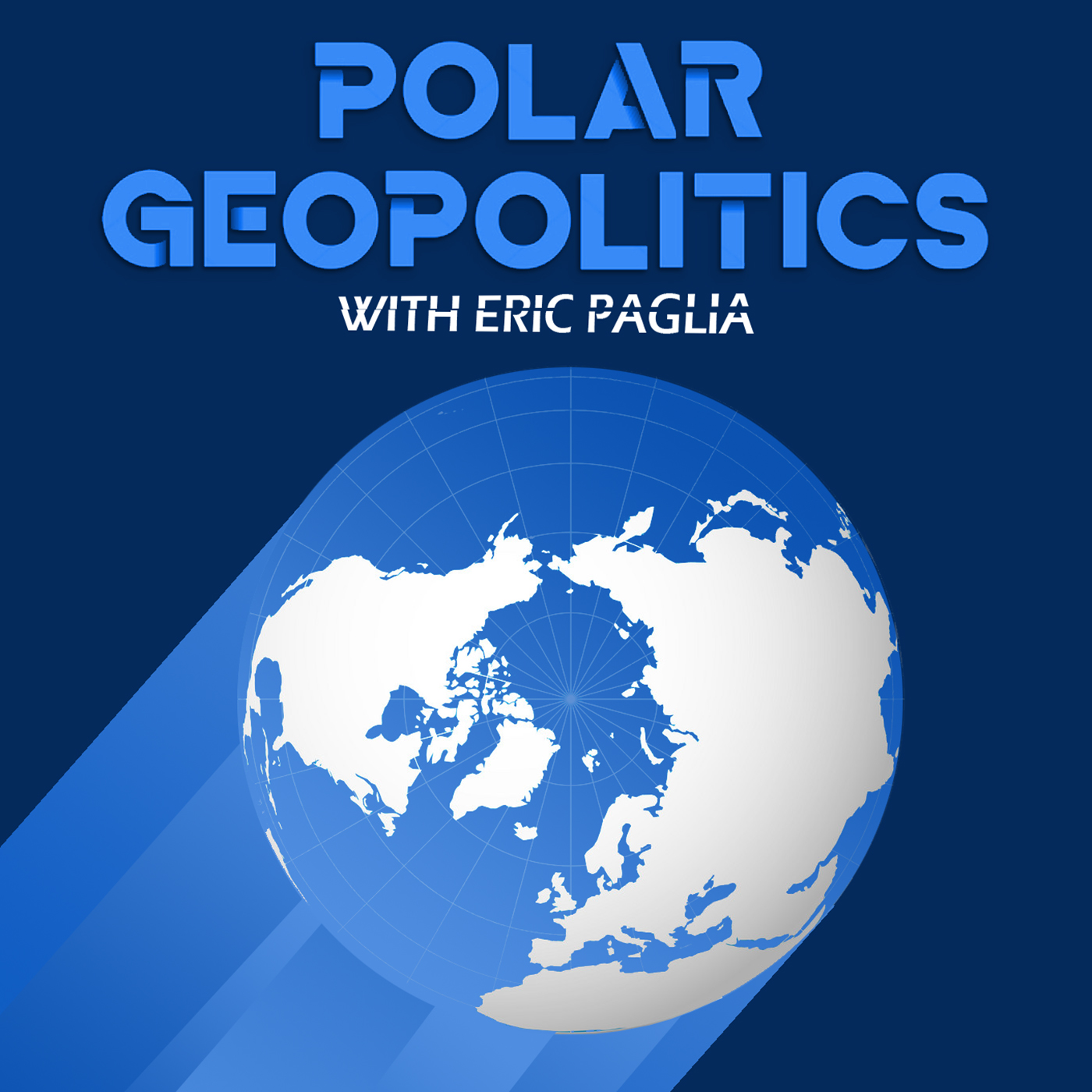
A podcast on the Arctic and Antarctica that applies the lens of geopolitics to analyze a wide range of critical issues pertaining to the polar regions and international affairs. In interviews with leading experts, recurring topics include Greenland, the Arctic Council, climate change, critical raw materials, the Antarctic Treaty System, hybrid warfare, science diplomacy, great power competition between the United States, China and Russia, sustainable development, Svalbard, NATO, Arctic shipping, Alaska, AI, technology and critical infrastructure, the Baltic Sea, military and national security, energy, the role of indigenous peoples in Arctic governance, and more. Polar Geopolitics is hosted by Dr. Eric Paglia, a podcast producer and environmental historian at KTH Royal Institute of Technology in Stockholm, Sweden.
A podcast on the Arctic and Antarctica that applies the lens of geopolitics to analyze a wide range of critical issues pertaining to the polar regions and international affairs. In interviews with leading experts, recurring topics include Greenland, the Arctic Council, climate change, critical raw materials, the Antarctic Treaty System, hybrid warfare, science diplomacy, great power competition between the United States, China and Russia, sustainable development, Svalbard, NATO, Arctic shipping, Alaska, AI, technology and critical infrastructure, the Baltic Sea, military and national security, energy, the role of indigenous peoples in Arctic governance, and more. Polar Geopolitics is hosted by Dr. Eric Paglia, a podcast producer and environmental historian at KTH Royal Institute of Technology in Stockholm, Sweden.
Episodes
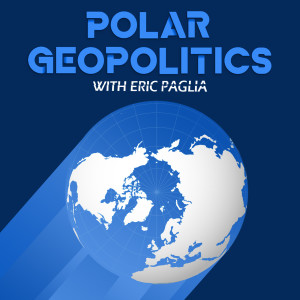
Thursday Apr 09, 2020
Crisis as opportunity: China and coronavirus diplomacy in the Arctic
Thursday Apr 09, 2020
Thursday Apr 09, 2020
In part 2 of the interview with Polar Geopolitics, Prof. Ilan Kelman explains how the coronavirus crisis provides an opportunity for actors inside and outside the Arctic to influence policy agendas and reshape the geopolitics of the region. Also in this episode, polar historian Peder Roberts tells of the failed attempt to introduce penguins into northern Norway.

Thursday Mar 26, 2020
Risks to Arctic Communities from the Coronavirus
Thursday Mar 26, 2020
Thursday Mar 26, 2020
Communities in the sparsely populated Arctic already faced significant social, economic and public health challenges, and the specter of COVID-19 spreading to the circumpolar North raises a number of serious concerns. What is more, the widespread disruptions in the wake of the pandemic will hit Northern communities that depend on for instance tourism, international scientific activity and the export of natural resources particularly hard. Ilan Kelman, a Professor of Disasters and Health, joins the podcast to explain how underlying vulnerabilities in Arctic communities could lead to an array of serious consequences in the context of the coronavirus crisis.

Monday Mar 09, 2020
Russia, China and the Arctic: Strategic partnership, strategic mistrust?
Monday Mar 09, 2020
Monday Mar 09, 2020
With energy shipments rapidly expanding and apparent personal chemistry between Vladimir Putin and Xi Jinping, the alignment of Russian and Chinese interests has caused concern in some capitols and altered the geopolitical calculus in the Arctic. But is this simply an emerging strategic partnership of convenience, which obscures a deeper level of strategic mistrust between two countries that have for centuries oscillated between being allies and adversaries? Ekaterina Klimenko analyzes the currently warming relationship between Russia—the geographic giant of the Arctic, and China—the ambitious Arctic outsider that has a yen to build a ‘polar silk road’ along the northern reaches of Eurasia. This episode also features a new segment on the podcast featuring polar historian Peder Roberts, who tells the tale of the Nazi expedition to Antarctica and Neuschwabenland, their short-lived claim on the continent.
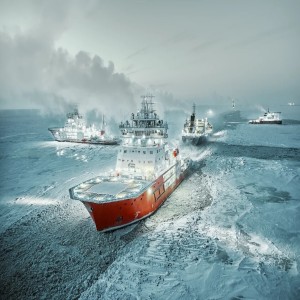
Thursday Feb 13, 2020
Northern Sea Route: Embodiment of Russia's interests and ambitions in the Arctic
Thursday Feb 13, 2020
Thursday Feb 13, 2020
The Northern Sea Route is central to questions of shipping, security, sovereignty, climate change and the exploitation and export of the massive energy reserves in the north of Russia, making the development of the NSR perhaps the most pivotal geopolitical issue in the Arctic this decade. It also represents a window—albeit often less than transparent—into the complexities of Russian domestic politics and the Kremlin’s intentions in the circumpolar North. Ekaterina Klimenko, an expert on Russia and the Arctic at the Stockholm International Peace Research Institute, joins the Polar Geopolitics podcast to share her wide-ranging analytical insights into this storied and increasingly strategic waterway in the context of contemporary Arctic and Russian geopolitics.
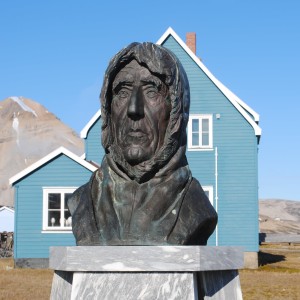
Tuesday Jan 28, 2020
The Geopolitics of the "Polar"
Tuesday Jan 28, 2020
Tuesday Jan 28, 2020
“The creation of polar identity is ultimately a matter of geopolitics, of the value states see in instruments and symbols that speak to polar rather than Arctic or Antarctic interests,” according to a new article entitled “Is there anything natural about the polar?”. Peder Roberts, co-author of the article, joins the Polar Geopolitics podcast to explain how the labelling of activities, issues and institutions as “polar” has long served a geopolitical purpose for states and other actors seeking to exert influence at the planetary extremes.
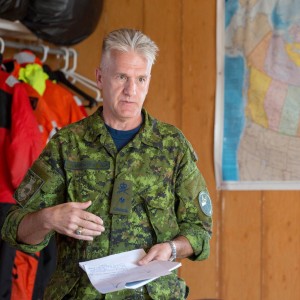
Tuesday Dec 10, 2019
Tuesday Dec 10, 2019
Responsible for all Canadian Armed Forces activity across the vast arc of northern Canada, Joint Task Force North plays a crucial role in safeguarding the North American Arctic. Polar Geopolitics is honored to welcome Brigadier General Patrick Carpentier, Commander of JTFN, for episode 20 of the podcast. BGen Carpentier discusses the main missions of JTFN and the array of challenges Canadian forces face in providing military security, engaging in crisis management and ensuring civilian safety in the Arctic at a time of significant environmental and geopolitical change, as well as increasing human activity in the Far North. He also explains the key contribution of the Canadian Rangers in securing the remote reaches of Canada’s Arctic territories.
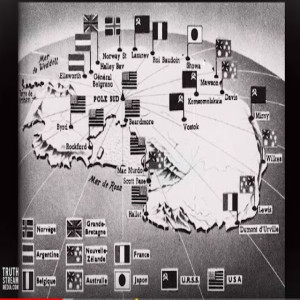
Thursday Nov 21, 2019
Resilient Regime at 60: An international law perspective on the ATS
Thursday Nov 21, 2019
Thursday Nov 21, 2019
Fresh off the 38thmeeting of CCAMLR that once again failed to achieve consensus on additional marine protected areas, the ATS might be seen as showing signs of stress amid escalating great power competition. Associate Prof. Jeffrey McGee, an expert on international law and Antarctica at the University of Tasmania, however, makes the case that the ATS is a resilient regime that 60 years after its signing remains a shining light of global governance for the area south of 60° South. On this episode, Dr. McGee applies his international legal perspective in discussing current Antarctic geopolitics, Australia’s ‘bifocal’ outlook on its neighbor to the south, and how the ATS interacts with other governance regimes at the global level. He also puts in context the CCAMLR 38 meeting that recently took place in his hometown of Hobart.
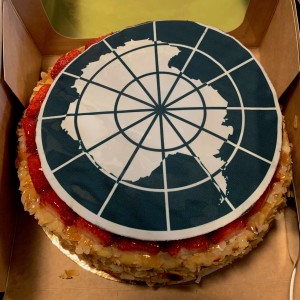
Friday Oct 18, 2019
Friday Oct 18, 2019
Is the Antarctic Treaty System obsolete, and could it collapse in the near future? Dr. Elizabeth Buchanan of the Australian National University explains why she is concerned that the increasing great power interest and Antarctic activity—ostensibly in the name of science—could jeopardize the almost 60-year-old ATS, and even lead to conflict if the Treaty is not updated to reflect current geopolitical realities. She also discusses Australia’s precarious situation as the state with the largest Antarctic claim (frozen under the ATS), which includes the ‘Dome A’ area where China has recently applied to create a Specially Managed Area around its Kunlun Station located there at the strategic highest point of the continent.
